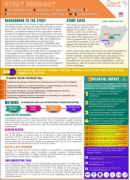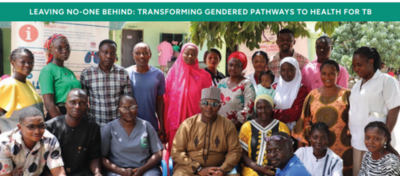
Research in Nigeria
Research in Nigeria
LIGHT partners at ZRC are investigating the acceptability, convenience, effectiveness and costs of new TB diagnostics and linkage to care interventions while working in formal and informal settings, where men congregate within densely populated urban communities, to identify missing cases. They will through developing and evaluating a gender-responsive approach to detecting people with TB from communities in Nigeria.
To achieve this, the research project will:
- Explore and identify gender-related factors preventing men from accessing TB services in Nigeria;
- Review exsisting evidence of current interventions to improve linkage to TB services and explore their effectiveness disaggregated by gender;
- Co-create, with key in-country stakeholders, a bespoke gender-responsive intervention to detecting people with TB; and
- Implement the gender-responsive intervention and evaluate its acceptability and effectiveness to increase TB case detection.
Methods:
- A qualitative study will be conducted to help understand the gender-related factors affecting access to care for men and women. this will comprise In-depth interviews with community men and women, focus group discussions with naturalised groups of men in their workplaces, and women, and key informant interviews with important stakeholders.
- A scoping review of the literature on the ‘effectiveness of current interventions that aim to link people to various levels of TB services in LMICs and high TB burden countries’ will be carried out. A lot of publications from these settings on the effectiveness of such interventions may still be in grey literature thus, a scoping review rather than a systematic review was deemed more apt to truly understand how effective the interventions are for men and women.
- Findings from these first two will then enable a co-creation of a bespoke gender- responsive TB intervention using consensus building research methodologies. Specifically, a combination of Delphi method and Nominal group technique will be used in series (rather than in parallel) for this approach.
- The intervention so created will be implemented and evaluated in a field trial. A hybrid implementation-effectiveness trial design will be used given that a full trial is not practicable within the timelines of the PhD. The details of the package of implementation will emanate from the findings of the third objective, thus the implementation sites and other details have yet to be finalized. The REC application submitted for this PhD is to cover for the first three objectives, the fourth will be submitted latterly.
LIGHT research team in Nigeria is also conducting a photovoice project engaging people with TB, family members and healthcare workers who support people with TB to explore strategies for delivering TB services that align with the needs of different genders in peri-urban settlements in Nigeria.
You can also watch this video, where Ebuka outlines how his research work is supporting the development of effective community-based approaches that improve men’s access to tuberculosis (TB) health services in Nigeria. His research findings will ultimately help tackle the burden of TB in Nigeria by strengthening equitable access to TB care, through collaborating with key national stakeholders to inform policy and practice.


